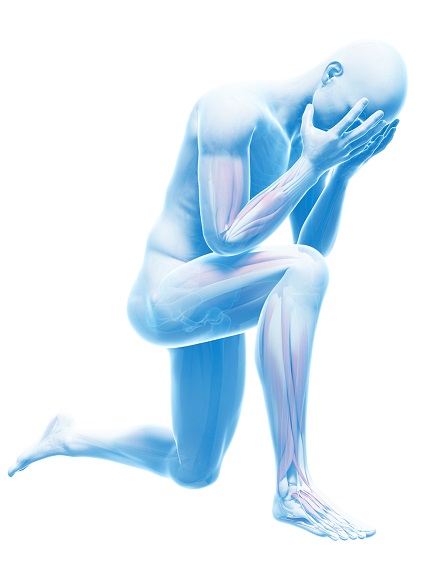
FAST FACTS: Differentiating Pain and Depression

Depression, while common in older adults, is NOT a normal part of aging. In fact, most older adults are not depressed. The chance of developing depression in later life increases as problems with health interfere with quality of life. Although everyone feels sad from time to time, to be diagnosed with depression five or more symptoms must be present for more than 2 weeks. However, after a significant loss like the death of a family member, a two-month mourning period is allowed prior to diagnosis of depression.
Symptoms of Depression
- Saddened mood most of the day
- Significantly decreased interest in activities
- Difficulty sleeping
- Weight loss or overall decreased appetite
- Increased agitation, restlessness, or irritability
- Fatigue
- Feelings of worthlessness or guilt
- Decreased ability to concentrate
- Suicidal thoughts or wish for death
Unfortunately, unmanaged pain can look very similar to depression in older adults and can also contribute to depression. It is important to recognize pain as different from depression.
Symptoms of Unmanaged Pain
- Crying, praying, or calling out
- Increased agitation, restlessness, or irritability
- Lack of emotional expression
- Decreased appetite
- Difficulty sleeping
- Decreased socialization
- Diminished ability to perceive or reason
- Feelings of worthlessness or guilt
What Else You Should Do
- Write down and share information about your pain with your healthcare provider
- Use a Pain Diary to note important information useful to the healthcare provider
- Try a non-drug treatment and document the impact on your pain in your Pain Diary
References
- National Institute on Aging. July 7, 2021. Depression and Older Adults. Accessed 2.21.2022. https://www.nia.nih.gov/health/depression-and-older-adults
- Centers for Disease Control or Prevention (CDC). January 6, 2021. Depression is Not a Normal Part of Growing Older. Accessed 2.21.2022. https://www.cdc.gov/aging/depression/index.html
Revised January 2022
